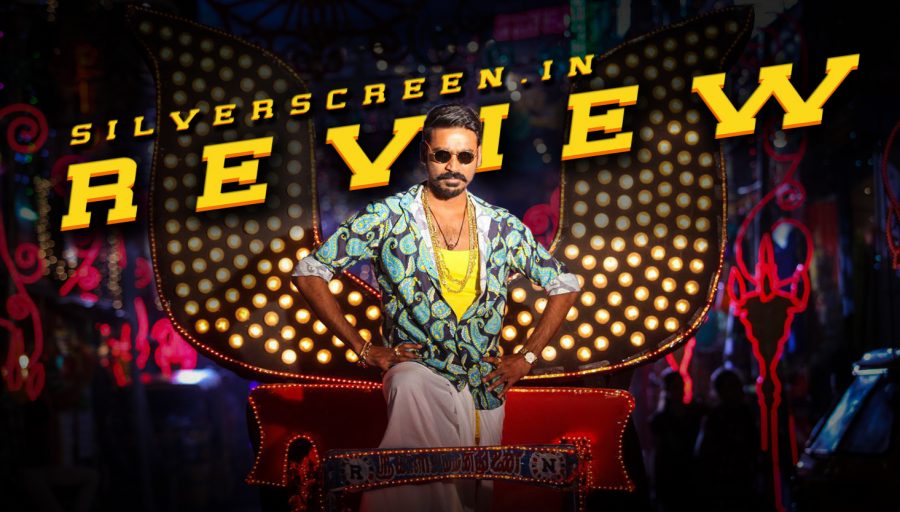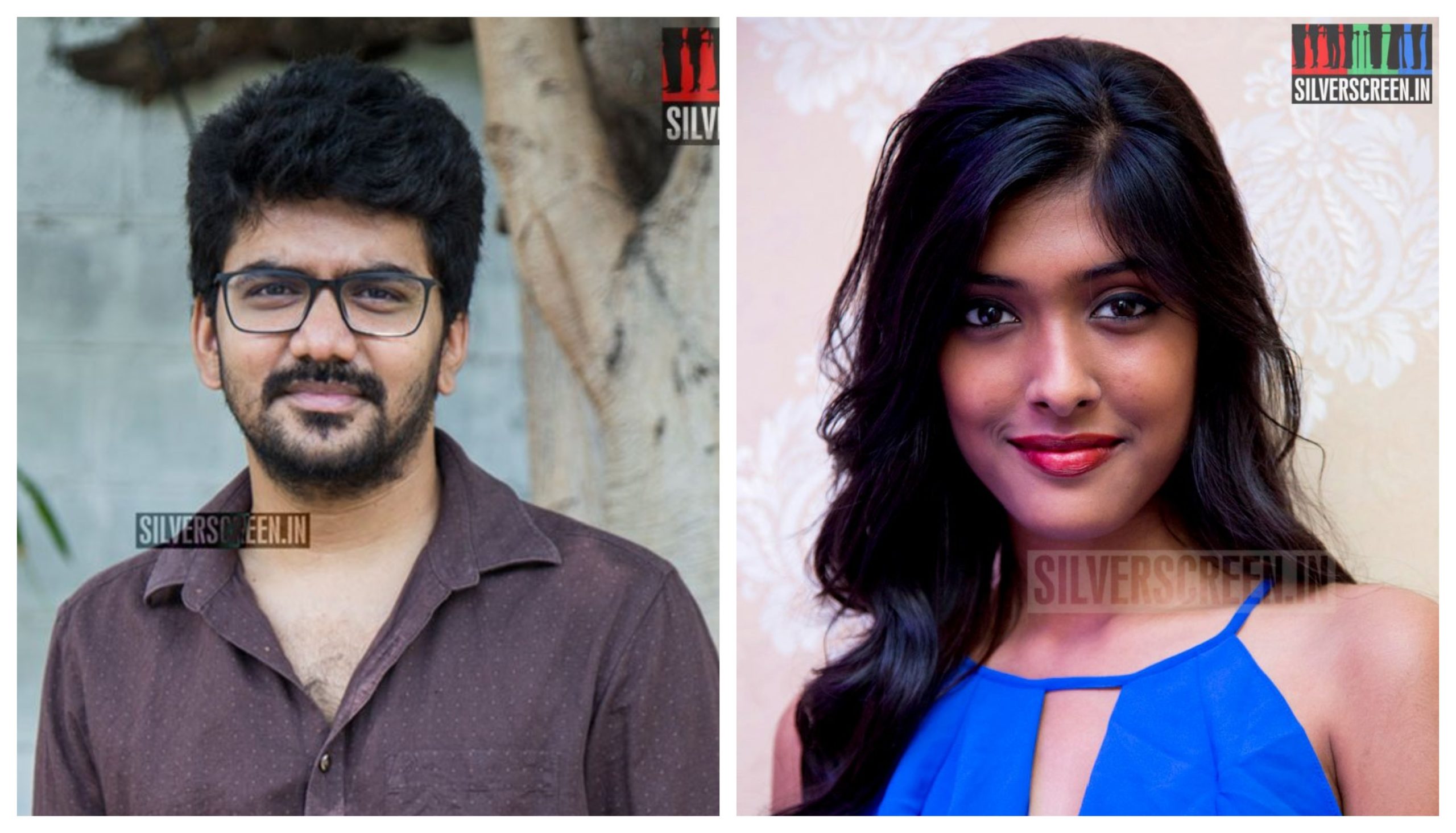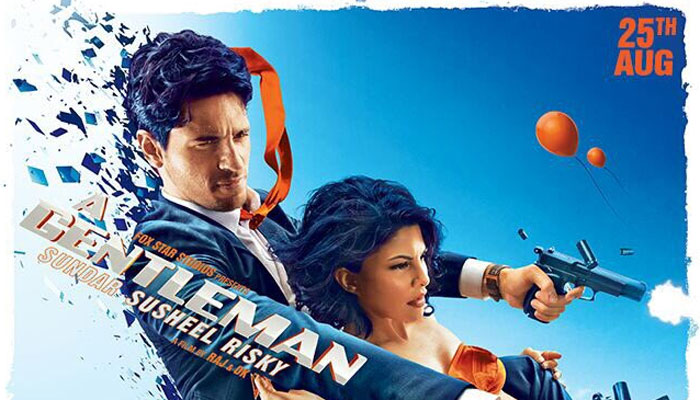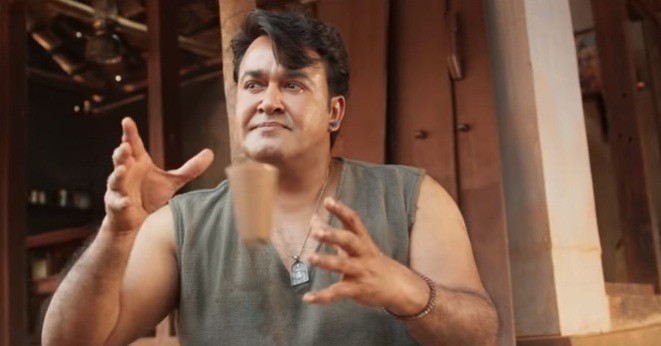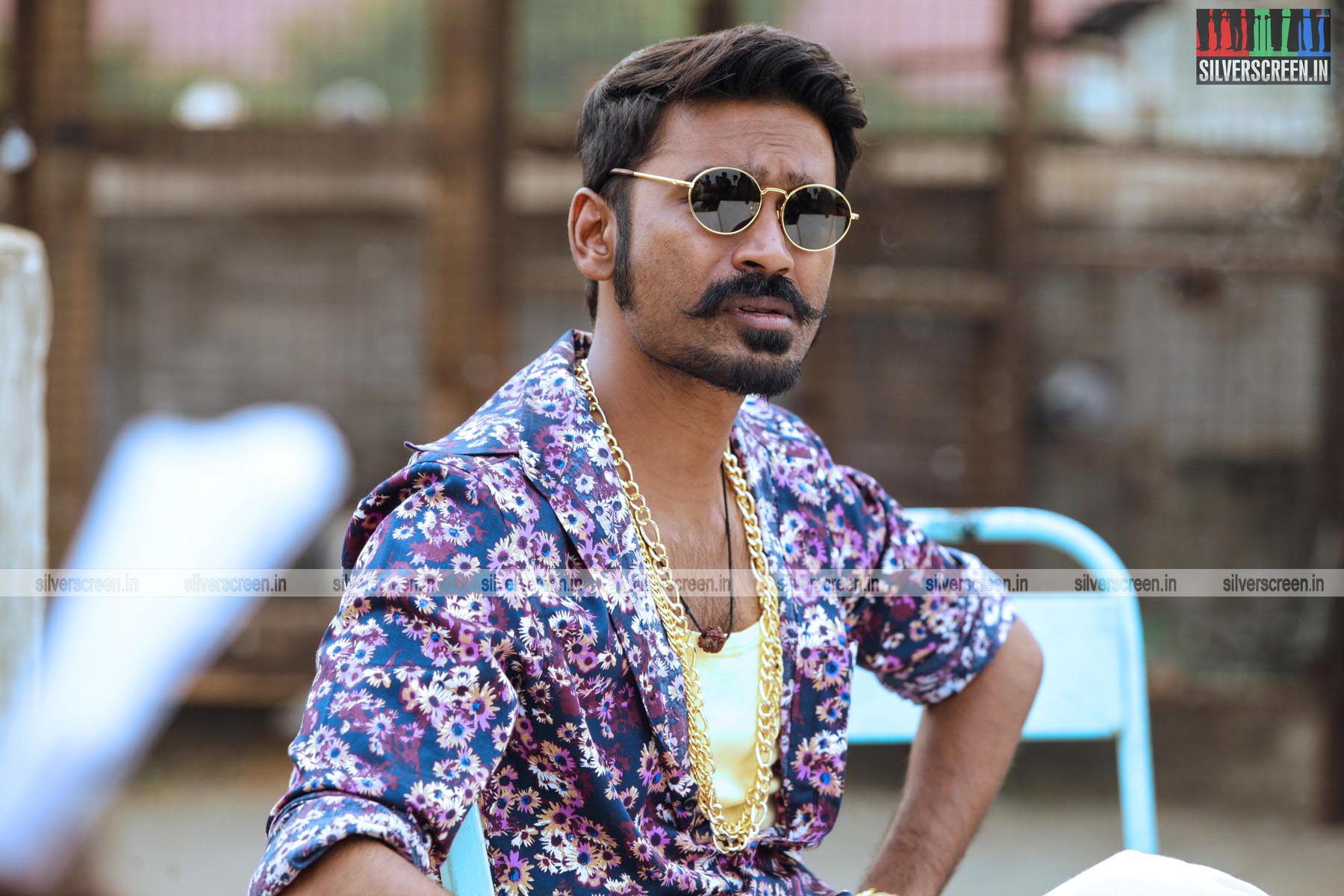
I would love to see a dialogue-writer at work, some time. He probably has the most arduous task of all, and the most extraordinary power to wield: that of transforming an actor into a hero. How else would you get the theatre to implode at something as preposterous as:
“Na kallapadamana nallavana irukardha vida, sutthamana kettavana irukken!” (I’d rather be pure evil than contaminated good!)
So verbose. And, so hollow. Scratch the surface, and there’s nothing underneath. Word-play, that (seemingly) sounds good when delivered pitch-perfect. That’s some serious talent right there; thinking up one-liners that knock you flat with their empty wisdom. A punch dialogue.
Maari is full of them.
*****
So this is thara local. Dhanush in vibrant florals (and paisleys), gaudy jewellery, a double-edged moustache, a distinct Shamitabh hangover, and more distinct Rajini-isms. When Maari flicks a cigarette stub, it serenely whizzes past in a protracted slow-mo shot, and hits the villain right on the chest; hard enough to make him stumble. He is the glorified rowdy who hates being called a rowdy, because, well, he has a heart of gold (Thheechcha thangam maari, moracha singam maari!). He would mercilessly tease little girls, but would also pay their school fees. He would forcefully extort money from his neighbours, but would also shelter them when in need. He would rough up almost everyone in the vicinity, but he would be ever so delicate with his flock of pet pigeons…
And, he harbours an inherent dislike for anyone with a decent education. Sounds much like Pudhupettai? Or Polladhavan? VIP? A slice of Anegan? Maari is much the same; only, here, a flock of pigeons are on board as well.
That explains those wings.
*****
It’s also quite a fitting name for a film that’s earnestly local; a contraction of the word maadhiri, which doesn’t have a convincing equivalent in any other language. And, it’s also the name of Dhanush, who’s… very Maari-maadhiri. Balaji Mohan has chosen well. Even better, he decides to weave in tiny somethings from the past. Vijay Yesudas, who plays the police officer, is Arjun. And, the local dada – whom Maari revers – is Velu annan. Then, there are those grand introductions themselves, it’s almost like watching a Rajini movie – no shot begins without a shattered pane or two, or a few upturned vegetable carts – just to announce Maari’s arrival. And when Maari turns auto-driver (some hilarious instances here), you could see it happening right before your eyes: this really is how a Superstar is made. The cool confidence, the easy swagger, a few loyal friends, knock-out one-liners… Dhanush is almost there, as his raucous fan-base would tell you.
Poor Vijay Yesudas, really. His arrival almost goes unnoticed.
******
Kajal Aggarwal might have an important role to play in Maari (a romance that isn’t – a nice touch, this), but that doesn’t mean she will be treated any differently than the average commercial fare. There’s the unwritten clause to abide by: one that comes with the territory of thara local (and that’s how it is used in a sentence) Tamil movies.
Recommended
She’s ‘ladies’. A ‘figure’. She has to be submissive.
And then, there are those ‘lessons’ in dressing.
The rape ‘jokes’ follow.
When did Dhanush morph into Vijay?
What’s it about breasts that bothers men?
What really happened to the director who made Vaayai Moodi Pesavum and Kaadhalil...?
No, I really wouldn’t like to think it was all Dulquer. Or Siddharth.
Or maybe… it was just Dhanush.
*****
The Maari Review is a Silverscreen original article. It was not paid for or commissioned by anyone associated with the movie. Silverscreen.in and its writers do not have an advertising relationship with movies that are reviewed on the site.
